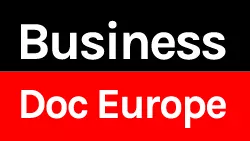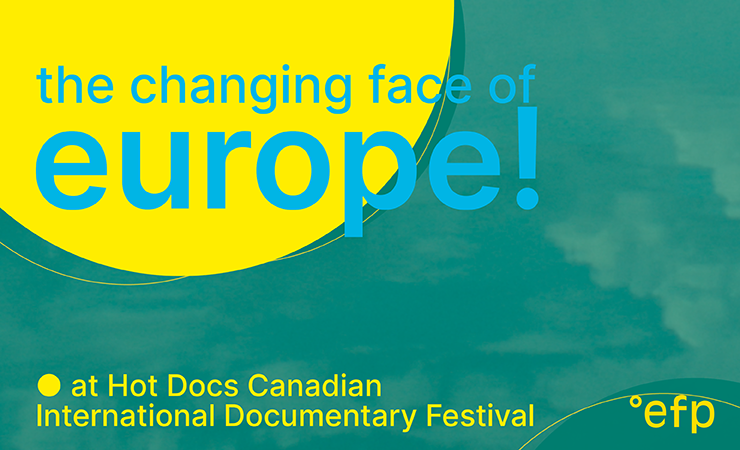
No, the title of UK director Kate Stonehill’s Phantom Parrot (a world premiere at CPH DOX in the F:act Award competition) doesn’t refer to some ghoulish avian house pet. It’s the name of a top-secret UK government surveillance programme that allows the authorities to download mobile phone data from suspects stopped at UK ports (sea, air or rail).
In late 2016, human rights activist Muhammad Rabbani, part of campaign group Cage, was among those stopped under Schedule 7 of the 2000 UK Terrorism Act and asked to hand over the passwords to his mobile devices. When he refused, he was taken to court and threatened with prison.
Stonehill had previously made a short film, Unspeakable (2017), about the nature of free speech in the age of terror. “The departure point for that film was a Downing Street press release which named six individuals as non-violent extremists…one (Dr Salman Butt) had a court case against the UK government which he ended up winning,” Stonehill says of her earlier documentary. After making it, she stayed in touch with Butt who introduced her to Rabbani.
The director felt that Rabbani’s experiences could provide a doorway into an exploration of questions around privacy, technology and free speech. “It’s rare that you find a human story that is going to give you a way in to looking at that.”
Stonehill decided to follow Rabbani. At that stage, she didn’t know if she would be making another short doc or something on a larger scale. “I was just drawn in by the questions that seemed to be at the heart of his case,” she remembers.
At first, the film concentrated on Rabbani’s public appearances. However, through Rabbani, she also met Ali Al-Marri, who was held in detention by the US for 13 years and tortured and abused during his captivity. Rabbani’s laptop contained documents about his detention.
“Even though I started with Rabbani’s story, I didn’t want to make a film about an individual. I wanted to make a film looking at this broader landscape around questions of digital privacy and also the Phantom Parrot programme,” Stonehill recalls. She knew that the counter-terrorism officers wouldn’t be willing to participate in the film. However, she was able to learn more about the inner workings of digital forensics company Magnet Forensics and how it ransacks suspects’ private data.
“We set ourselves the challenge of trying to tell the story through a combination of observation and reconstruction,” Stonehill explains her methodology.
One of her key interviewees was with Ryan Gallagher, an investigative reporter who had investigated Phantom Parrot and had closely followed Rabbani’s case.
Stonehill’s film is sold by CAA. Made through Brass Hill Media, it is produced by Steven Lake (known for Nancy Schwartzman’s Roll Red Roll). “I could see he [Lake] had the bandwidth to sit with something that was going to be a slow and challenging but hopefully rewarding uphill battle, which this was!” says the director.
The film is very much set in the world of secrecy and surveillance. For Stonehill, one of the biggest challenges was “looking for ways you can find to make the invisible world visible. That’s an exciting challenge…” There were parts of the story that the director simply didn’t have access to. She was putting together a puzzle as much as telling a story.
“And finding funding for an independent film is an uphill battle. You just don’t know where the next bit of funding is going to come from,” Stonehill notes of the piecemeal fashion in which the documentary was financed. There was early support from the Catapult Film Fund and the Tribeca Film Institute. BFI/Doc Society also came aboard. “In the end, we had really wonderful partners who really backed the creative vision and understood the kind of film we were making.”
Now, the director hopes that the film will “raise awareness of this gulf between the law and technology…that it prompts people who watch it to reflect on what that means for us as a society and what those vulnerabilities are that this digital age has ushered in.”
The tense atmosphere is heightened by a musical score written by composer Nainita Desai. “I was also keen to try to avoid tech clichés as much as possible with the music. I love what she [Desai] did with the strings,” says Stonehill.
UK grime artist Gaika wrote a special song for the end credits – and will be in Copenhagen to give a concert after the film’s world premiere March 19.
It’s perhaps no coincidence that The Phantom Parrot has a similar feel to Laura Poitras’s 2014 Oscar winner Citizenfour, about US whistleblower Edward Snowden and the National Security Agency scandal. It was through Snowden that the existence of the surveillance programme was first leaked. Ryan Gallagher reported on it in The Intercept.
Stonehill is a firm fan of Poitras’s documentaries. Like Poitras (nominated earlier this year for another Oscar, for All The Beauty And The Bloodshed), she has made a film [The Family Statement (2022) co-directed with Grace Harper] about the Sacklers, the hugely wealthy US family linked to the opioid crisis in America.
“I think she is an incredible filmmaker. She is definitely a north star for me,” Stonehill says of Poitras. The fact that they have both made Sackler-related docs is, though, “a bit of a coincidence” (Stonehill wasn’t aware of All The Beauty And The Bloodshed when she was working on The Family Statement).
Poitras came to a screening of The Family Statement in north London and was very encouraging. “What I think she [Poitras] does really well is manage to make films that are looking at broader questions of accountability through often a very intimate, individual story. Tonally, cinematically, I am a huge fan of her work.”










